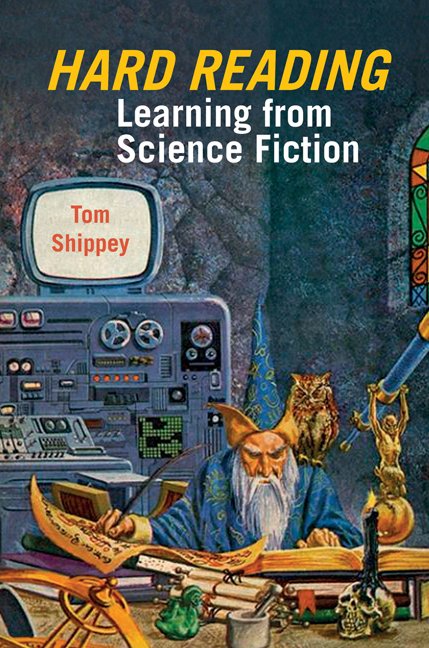A Personal Preface
Summary
Science fiction has been the most characteristic literary mode of the twentieth century. It has of course had forerunners and ‘anticipations’ (for which see Seed 1995). But whether one looks back to the early nineteenth century and Mary Shelley's Frankenstein, and after that the mostly British tradition of ‘scientific romances’ (see Stableford 1985), or the many moon-voyages and fantastic journeys of much earlier times, there was a sea change in the Wellsian 1890s, and an even greater one in the ‘pulp fiction’ era beginning in the 1920s. It came, obviously, as a natural reaction to the accelerating pace of scientific discovery, which affected people's everyday lives on the technological level, with internal-combustion engines, powered flight and the whole apparatus of military matters right up to the atom and hydrogen bombs and the intercontinental ballistic missiles (ICBMs) which could deliver them. Not very far in the background, on the intellectual level, were the impacts of Darwinism, social anthropology, challenges to faith and even (much underrated) Grimmian comparative philology. Many authors, even more readers, responded to these changes in every conceivable way.
This development caught the literary world by surprise and was too often unwelcome. Later in this book I note some of the hostile reactions which have often been reported to me, but the one which sticks in my mind is the extraordinarily grudging blurb which Penguin Books used to put on the back of their editions of John Wyndham's books in the 1950s and 1960s: they summarised his career, saying he wrote ‘stories of various kinds’ and ‘detective novels’. But then, the blurb proclaimed, ‘he decided to try a modified form of what is unhappily known as “science fiction”’. Only a ‘modified form’, and don't let the term for it put you off, the Penguin editors defensively insisted. Later blurbs only noted that Penguin had sold half-a-million copies of Wyndham's works, but the attitude remained and has not entirely vanished: see, for instance, Ursula Le Guin's tart reaction, now, in 2015, to Kazuo Ishiguro's nervousness lest his novel The Buried Giant might be taken as ‘fantasy’ (and so not serious, not literary).
- Type
- Chapter
- Information
- Hard Reading: Learning from Science Fiction , pp. xi - xviPublisher: Liverpool University PressPrint publication year: 2016



